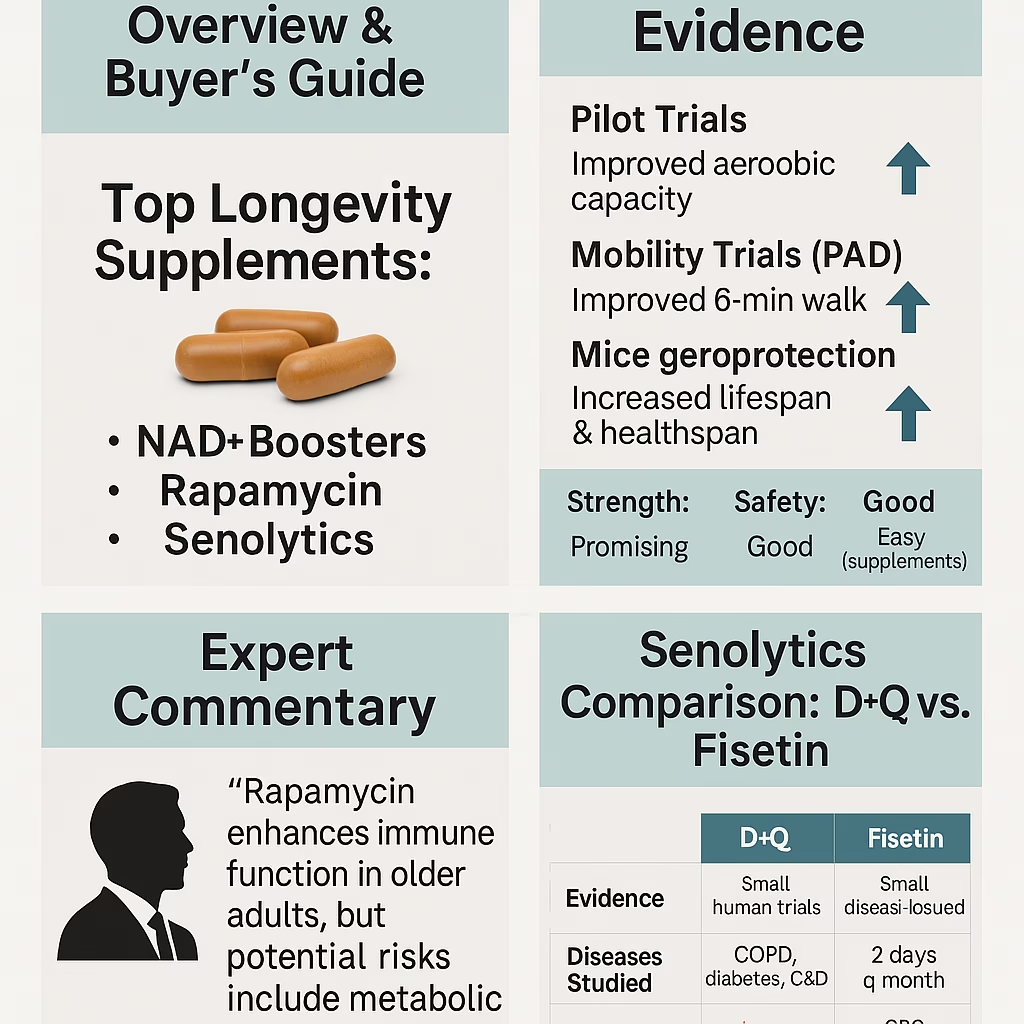Ashwagandha Benefits Backed by Science: Stress Relief, Better Sleep & Mood Boost (2025 Guide)
Ashwagandha benefits are now backed by modern science—helping reduce cortisol, improve sleep quality, boost mood, and support energy levels. Whether you’re stressed, anxious, or looking for natural vitality, this ancient herb offers evidence-based relief.
Table of Contents

1. Introduction: What Is Ashwagandha?
In a world where stress has become a daily struggle, the search for effective natural remedies is more urgent than ever. Enter Ashwagandha (Withania somnifera)—an ancient herb from Ayurveda, now at the center of cutting-edge scientific research for its stress-busting, adaptogenic powers.
Ashwagandha has gained massive popularity as a holistic supplement for stress, sleep, energy, and more. But does it really work? Let’s dive deep into its history, science, modern research, and how it compares to other well-known adaptogens and medicines.
2. Historical Roots & Traditional Uses
Ashwagandha, known as “Indian ginseng” or “winter cherry,” has been used for over 3,000 years in Ayurveda to promote vitality, resilience, and longevity. The Sanskrit name translates to “smell of a horse,” alluding to its reputed ability to impart the vigor and strength of a stallion.

Traditional uses:
- Enhancing physical strength and stamina
- Relieving anxiety and stress
- Improving sleep
- Supporting reproductive health
- Revitalizing overall energy and immunity
Ayurvedic texts described Ashwagandha as a Rasayana—a rejuvenating tonic for body and mind.
3. How Ashwagandha Works: The Science
Ashwagandha is classified as an adaptogen—a natural substance that helps the body adapt to stress and normalize physiological functions.
Key bioactive compounds:
- Withanolides: Steroidal lactones with anti-stress and anti-inflammatory properties
- Alkaloids: Help modulate neurotransmitters
- Saponins and sitoindosides: Boost antioxidant activity
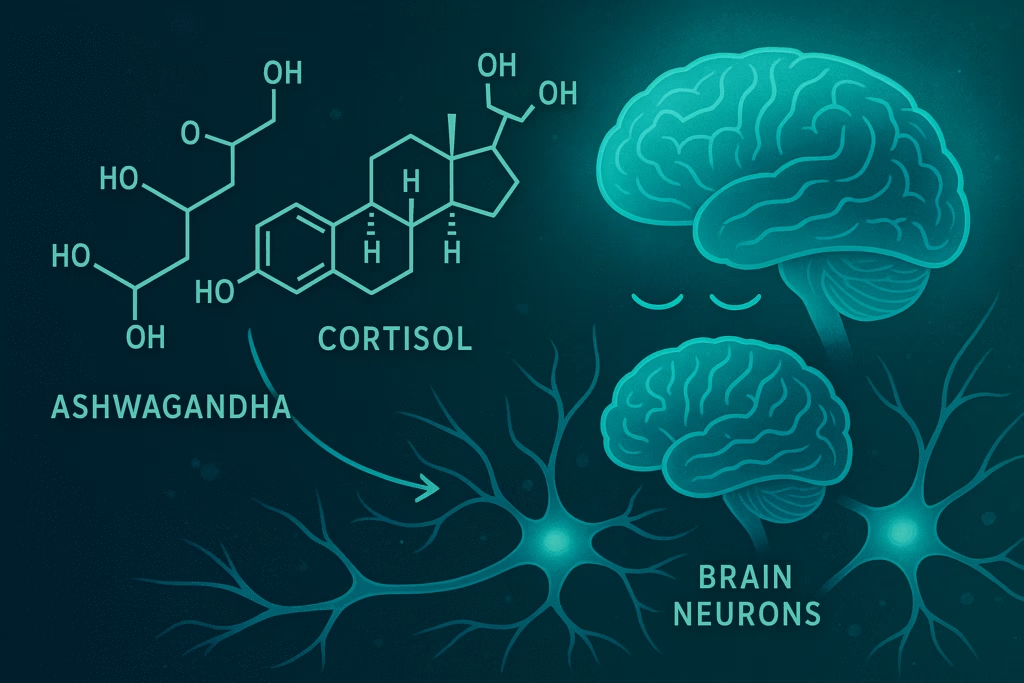
Mechanisms of action:
- Regulates cortisol: The “stress hormone”; high cortisol leads to anxiety, fatigue, weight gain
- Modulates GABA receptors: Promotes calmness and better sleep
- Reduces oxidative stress: Protects brain and body from cellular damage
“The adaptogenic effects of Ashwagandha are now being mapped to its impact on the hypothalamic-pituitary-adrenal (HPA) axis, offering a scientific basis for its ancient claims.”
— Dr. Sameer Dixit, PhD, Plant Medicine Researcher
4. Modern Research & Clinical Studies
Recent years have seen a surge of clinical trials and reviews validating Ashwagandha’s benefits.

Landmark Studies:
- Stress & Cortisol Reduction
A 2021 double-blind, placebo-controlled study (Lopresti et al., Nutrients, 2021) found that 240 mg daily of standardized Ashwagandha extract significantly reduced cortisol levels and perceived stress over 8 weeks. - Anxiety & Mental Health
A 2019 meta-analysis (Pratte et al., J Altern Complement Med, 2019) reported that Ashwagandha supplementation led to greater reductions in anxiety and stress scores than placebo in several randomized trials. - Sleep Improvement
A 2020 clinical trial (Langade et al., Cureus, 2020) showed improved sleep quality and reduced insomnia symptoms. - Energy & Athletic Performance
A 2015 study (Wankhede et al., J Int Soc Sports Nutr, 2015) found increased strength and VO2 max in athletes. - Other benefits: Immunity support, thyroid regulation, sexual wellness, cognitive boost.
References:
- Pratte, M.A. et al. (2019). “An Overview of Clinical Trials of Ashwagandha…” J Altern Complement Med.
- Chandrasekhar, K. et al. (2012). “A prospective, randomized double-blind, placebo-controlled study of safety and efficacy of a high-concentration full-spectrum extract of Ashwagandha root in reducing stress and anxiety in adults.” Indian J Psychol Med.
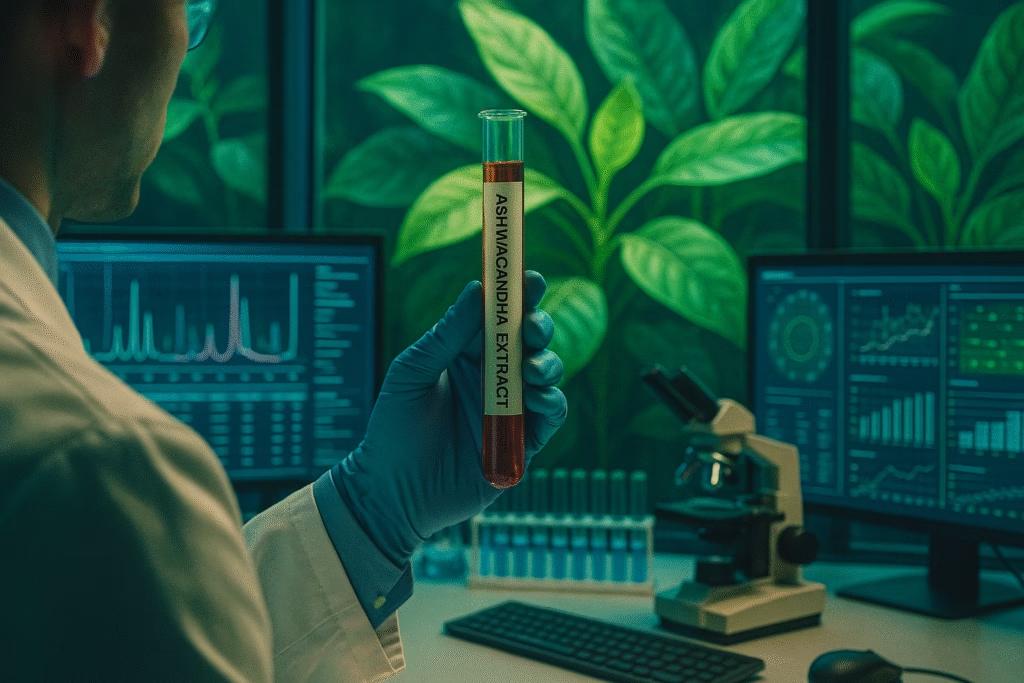
5. Quotes & Opinions: What the Experts Say
1. Dr. Andrew Huberman (Neuroscientist, Stanford):
“Ashwagandha has impressive evidence for lowering anxiety and improving sleep, but always look for third-party tested supplements.”
2. Dr. Rhonda Patrick (Biomedical Scientist):
“I recommend Ashwagandha for stress resilience, but personalized dosing and timing are key for optimal results.”
3. Dr. Michael Greger (Physician, Nutrition Expert):
“While not a cure-all, Ashwagandha has more clinical support than most herbs marketed for stress today.”
4. Dr. Aviva Romm (Integrative Medicine MD):
“For many of my patients, Ashwagandha provides a gentle, non-sedating support for anxiety and adrenal fatigue.”
5. Dr. Uma Naidoo (Harvard Psychiatrist & Nutritionist):
“Adaptogens like Ashwagandha can be an adjunct for mood management—but should not replace therapy for major mental health issues.”
6. Dr. Mark Hyman (Functional Medicine):
“The adaptogenic effect helps balance hormones and energy in stressful times—an excellent tool for modern living.”
7. Dr. Sameer Dixit (Plant Medicine Researcher):
“We’re finally seeing clinical data catching up to Ayurveda’s wisdom.”
8. Dr. Deepak Chopra (Mind-Body Medicine):
“Ashwagandha’s power lies in its holistic action—nourishing body, mind, and spirit.”
6. Best Uses for Stress & Beyond
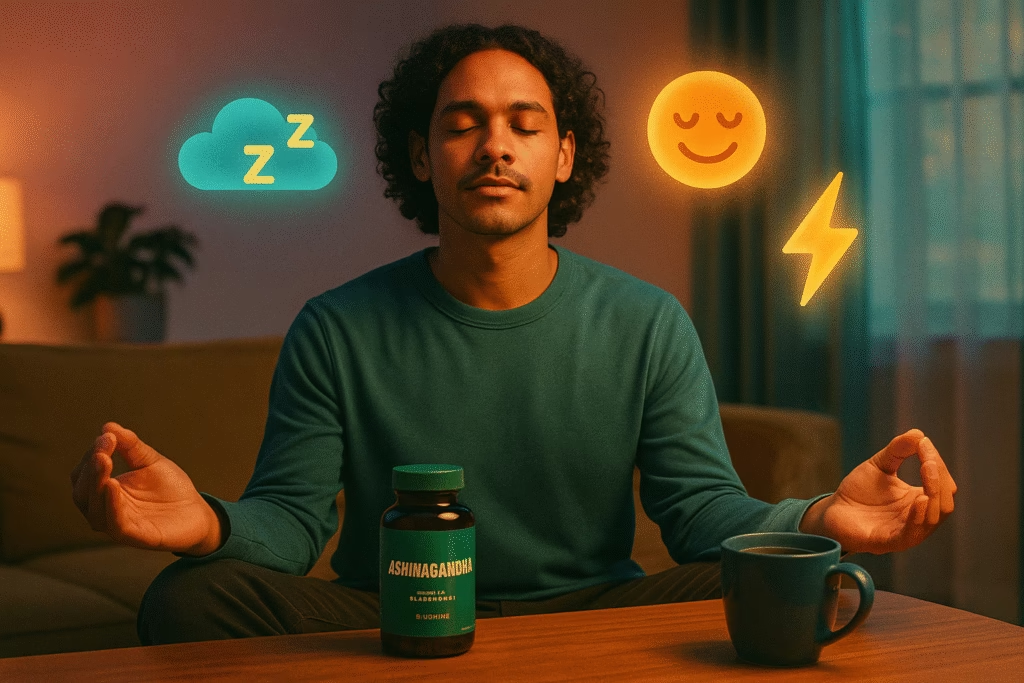
1. Stress, Anxiety & Burnout
- Proven to lower cortisol and improve emotional resilience.
2. Sleep Support
- Enhances sleep quality without next-day drowsiness.
3. Physical Performance
- Boosts strength, stamina, and recovery for athletes.
4. Cognitive Health
- May support memory and focus, especially under stress.
5. Immunity & Wellness
- Supports immune balance and inflammation reduction.
6. Hormonal Balance
- Traditional uses for thyroid, adrenal, and reproductive health.
Always consult a healthcare provider before starting any supplement, especially if on medication or pregnant/nursing.
7. Comparative Table: Ashwagandha vs. Other Stress Busters
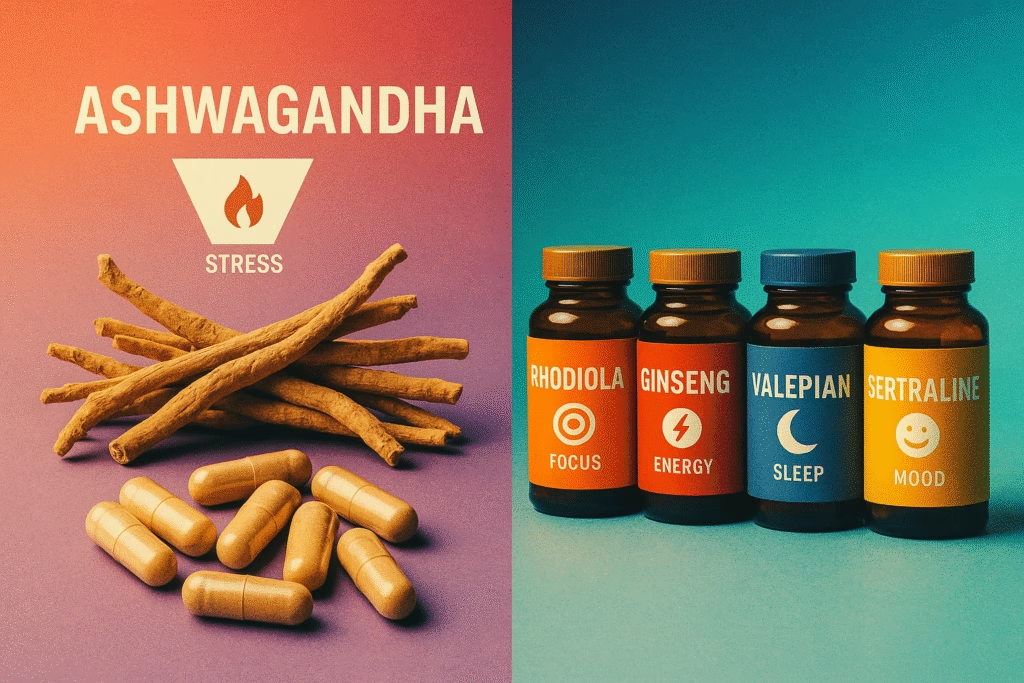
| Herb/Medicine | Type | Key Benefits | Evidence Level | Side Effects | Best For |
|---|---|---|---|---|---|
| Ashwagandha | Herb | Lowers stress, sleep, immunity | High | Mild (GI upset, rare) | Stress, anxiety, energy |
| Rhodiola | Herb | Mental energy, focus | Moderate | Headache, irritability | Fatigue, focus |
| Ginseng | Herb | Stamina, blood sugar | Moderate | Insomnia, BP | Fatigue, immunity |
| L-Theanine | Amino Acid | Calming, alertness | High | Very rare | Anxiety, sleep, focus |
| Valerian Root | Herb | Sleep, calm | Moderate | Drowsiness | Insomnia, mild anxiety |
| Sertraline | Medicine | Antidepressant, anxiety | High | Nausea, libido, etc. | Clinical anxiety/depression |
| Lorazepam | Medicine | Sedative, anxiety | High | Drowsiness, addiction | Acute anxiety, insomnia |
Note: Ashwagandha is non-sedating and suitable for daily use; prescription medicines are for diagnosed disorders under doctor supervision.
8. Limitations & Side Effects
Not a Miracle Cure
- Ashwagandha is not a replacement for professional mental health care in severe cases.

Potential Side Effects
- Mild GI upset, diarrhea, drowsiness (rare)
- May interact with sedatives, thyroid medications, immunosuppressants
- Caution in pregnancy, autoimmune diseases
Quality Matters
- Potency varies by brand—look for standardized extracts (5% withanolides), 3rd-party testing
“Like all supplements, Ashwagandha’s benefits depend on the quality and source. Only use trusted brands.”
— Dr. Andrew Huberman
9. Future Prospects & Ongoing Research
- Personalized Dosing: Research is focusing on tailoring dosage for genetics, age, and health status.
- Brain Health: New trials are exploring neuroprotection in cognitive decline and dementia.
- Chronic Illness: Studies in diabetes, arthritis, cancer support.
- Mental Health: Adjunct for depression, PTSD, and burnout.
- Formulation Advances: Enhanced bioavailability and synergistic blends with other adaptogens.
AI and Modern Herbal Research
AI-driven meta-analyses are helping sift through thousands of research papers to uncover new indications, side effects, and optimal dosages for Ashwagandha and similar herbs.

10. FAQs About Ashwagandha
Q1. How long does Ashwagandha take to work?
Most people notice effects on stress and sleep within 2–4 weeks.
Q2. Is Ashwagandha safe for daily use?
Yes, for most healthy adults. Use within recommended dosages.
Q3. Can Ashwagandha be taken with other supplements or medications?
Consult your doctor—possible interactions with sedatives, thyroid, or immunosuppressants.
Q4. What is the best time to take Ashwagandha?
Often at night for sleep; morning for stress or energy. Consistency is key.
Q5. Is there a difference between root and leaf extracts?
Most clinical studies use root extract. Leaf is less studied.
Q6. Does Ashwagandha help with weight loss?
Indirectly, by reducing stress-related eating and improving metabolism.
Q7. Are there any long-term risks?
No major risks known with quality supplements, but safety in pregnancy is not established.
Some of the most trusted nootropic supplements available on Amazon are shown below. These are evidence-backed and widely used.
Koshaveda Ashwagandha AF-43 | 600mg – 60 Capsules
TrueBasics Ashwagandha, 600mg of KSM 66 Ashwagandha (60 Capsules)
Rasayanam Ashwagandha Ksm-66 (500 Mg)
11. Conclusion
Ashwagandha stands at the crossroads of ancient tradition and modern science.
For those seeking a natural way to manage stress, boost energy, and improve sleep, Ashwagandha is backed by both millennia of use and a growing body of clinical evidence.
It’s not a cure-all, and quality matters, but used wisely, Ashwagandha offers a safe, versatile tool in your wellness arsenal—outperforming many “quick-fix” supplements and matching the efficacy of some prescription aids for mild stress and anxiety.
Ashwagandha has evolved from an Ayurvedic Rasayana into one of the most researched natural adaptogens of modern times. Its traditional reputation for boosting vitality, resilience, and mental balance is now being validated by clinical science.
A landmark double-blind, placebo-controlled study published in Nutrients (2021) showed that 240 mg/day of standardized Ashwagandha extract significantly reduced cortisol levels and improved stress resilience over an 8-week period (Lopresti et al., PubMed).
Similarly, a 2019 meta-analysis in the Journal of Alternative and Complementary Medicine reviewed multiple clinical trials and concluded that Ashwagandha supplementation led to greater reductions in anxiety and stress scores compared to placebo (Pratte et al., PubMed). These results strengthen its standing as a natural support for mental health.
When it comes to sleep and recovery, a clinical trial in Cureus (2020) demonstrated that participants taking Ashwagandha experienced improved sleep quality, reduced insomnia symptoms, and better overall restfulness (Langade et al., PubMed). For athletes, studies also show performance benefits, including increased strength and VO₂ max, making it a versatile herb for both mind and body.
Independent expert reviews from Examine.com highlight Ashwagandha as one of the best-studied adaptogenic herbs available today, noting its broad spectrum of evidence for stress relief, sleep, and hormonal balance. The consensus is clear: quality and dosage matter. Standardized extracts such as KSM-66 or Sensoril provide consistent results and are safer choices.
In summary, Ashwagandha represents a rare bridge between ancient wisdom and modern science. While not a cure-all, the evidence suggests it can be a safe, effective, and sustainable solution for stress management, sleep support, and overall resilience when sourced from trusted, third-party tested brands and used under medical guidance.
If this part caught your eye, wait till you see how it connects with “Top Longevity Supplements 2025: Evidence, Expert Insights, and the Future of Anti-Aging Science” — check it out here.

Explore, experiment, and always consult a professional.
The future of Ashwagandha is bright, with new uses and deeper science emerging every year.
“Ashwagandha is a perfect example of how ancient wisdom and modern science can create new hope for natural wellness.”
— Dr. Mark Hyman




